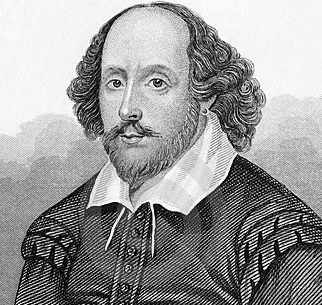Nick
Catalano is a TV writer/producer and Professor of Literature
and Music at Pace University. He reviews books and music for
several journals and is the author of Clifford
Brown: The Life and Art of the Legendary Jazz Trumpeter,
New
York Nights: Performing, Producing and Writing in Gotham
, A
New Yorker at Sea,, Tales
of a Hamptons Sailor and his most recent book,
Scribble
from the Apple. For Nick's reviews, visit his
website: www.nickcatalano.net
KENNETH
BRANAGH IS TO SHAKESPEARE WHAT GLENN GOULD IS TO BACH
For
more than thirty years audiences have been treated to film
experiences of Shakespeare that Kenneth Branagh has created
which transcend any that preceded them. While occasionally
lauded by writers, Branagh’s pantheon of Shakesperiana
has not received critical scope sufficient to account for
the myriad insights that his work has provided for students
and audiences everywhere. He has accomplished his feats as
an outstanding thespian, incisive screenwriter and innovative
director, talents never before employed so comprehensively
in presenting so much of Shakespeare’s oeuvre.
 Born
in Belfast, and moving to England with his family at age nine,
Branagh received the kind of thoroughbred education for which
the British have been famous for a thousand years. He finished
schooling at the Royal Academy of Dramatic Art and wound up
reciting a soliloquy from Hamlet for Queen Elizabeth
when she visited the school. He commenced his professional
career and soon received numerous plaudits for dozens of stage
roles (c.f. Wikipedia) in the eighties and nineties. Soon
after, he began presenting Shakespeare on film and his 1989
production of Henry V garnered him Oscar nominations
for both acting and directing.
Born
in Belfast, and moving to England with his family at age nine,
Branagh received the kind of thoroughbred education for which
the British have been famous for a thousand years. He finished
schooling at the Royal Academy of Dramatic Art and wound up
reciting a soliloquy from Hamlet for Queen Elizabeth
when she visited the school. He commenced his professional
career and soon received numerous plaudits for dozens of stage
roles (c.f. Wikipedia) in the eighties and nineties. Soon
after, he began presenting Shakespeare on film and his 1989
production of Henry V garnered him Oscar nominations
for both acting and directing.
His
innovative Shakespeare film direction continued and it was
with his Hamlet production in 1996 that I began closely
referencing his work in my Shakespeare classes at Pace University.
Initially, he impressed by presenting the play in its entirety
(rarely attempted in any stage production and never in any
film production) with a running time of over four hours. Try
keeping any student or contemporary audience member attentive
for that long and you will be thwarted. But Branagh’s
keen knowledge of film avoided the problem. Instead of the
audience having to sit through long narrative passages, he
inserts live scenes of the descriptions while the actor is
narrating. Horatio’s overlong account of the Fortinbras
story in Act l is a classic example -- action abounds and
the tedium of long narration is avoided. Of course there are
first-rate performances by Branagh in the title role, Derek
Jacobi as Claudius, Kate Winslet as Ophelia, Julie Christie
as Gertrude etc. In addition, Branagh’s genius for evoking
every corner of Shakespeare’s world is best seen with
the clever casting of Robin Williams and Billy Crystal as
the comic gravediggers; Hamlet is rarely thought
of as funny play but it has many comic scenes. While most
productions focus on the tragedy Branagh thoroughly understands
Shakespeare’s epic canvas and addresses all of it.
Love’s
Labors Lost is one of Shakespeare’s least accessible
plays. The plot is easy enough: the Bard is poking fun at the hypocrisy of renaissance intellectual
and spiritual posturing. It follows the King of Navarre and
his three companions as they attempt to swear off the company
of women in order to attain perfection in study and fasting.
No sooner do they brag and vow to be unswerving in their oaths
they fall into instant infatuation with the Princess of France
and her three ladies. The topical inside jokes and allusions
are sometimes too obscure for students but there is also plenty
of farce. The tricky thing about this play is the musicalizing:
obscure renaissance songs are sung with unusual frequency
and require special study in order to fully appreciate their
contribution to the scope of the comic drama. But their performance
is key; imagine viewing a Broadway musical comedy without
understanding the music and you can see the problem.
is poking fun at the hypocrisy of renaissance intellectual
and spiritual posturing. It follows the King of Navarre and
his three companions as they attempt to swear off the company
of women in order to attain perfection in study and fasting.
No sooner do they brag and vow to be unswerving in their oaths
they fall into instant infatuation with the Princess of France
and her three ladies. The topical inside jokes and allusions
are sometimes too obscure for students but there is also plenty
of farce. The tricky thing about this play is the musicalizing:
obscure renaissance songs are sung with unusual frequency
and require special study in order to fully appreciate their
contribution to the scope of the comic drama. But their performance
is key; imagine viewing a Broadway musical comedy without
understanding the music and you can see the problem.
Hilariously,
Branagh solves the problem. He simply removes the arcane Renaissance
songs and replaces them with immediately recognizable hits
by famous composers i.e. Cole Porter and Irving Berlin. As
a result, we have “I Get a Kick out of You,” “There’s
No Business Like Show Business” etc. performed with
the dancing spectacle of a classic 1930’s Broadway Musical;
thus we have instant accessibility and concomitant enjoyment.
And Branagh removes the last vestige of farcical obscurity
by casting Nathan Lane, an immediately recognizable comic
master as Costard the clown .
Branagh’s
directorial innovative stylings of Shakespearean drama are
similarly traceable in Much Ado About Nothing, Othello
and As You like It as are his many acting/directing
achievements in a cascade of popular commercial films: Wild
Wild West, Sleuth, Mary Shelley’s Frankenstein,
Dunkirk, and the recent Murder on the Orient Express.
Awhile ago he also scored a stage triumph in a production
of Macbeth for the Manchester International Festival. The
completely sold-out run was later presented on National Theater
Live and replicated in New York where Branagh made his Broadway
stage acting debut in the title role and received notable
critical kudos.
In
this essay I’m focusing on Branagh’s stunning
film presentations of Shakespeare. And perhaps his most daring
triumph occurred a few months ago with his film All is
True just now available in On Demand television. The
film is an imaginative account of Shakespeare’s life
when he left London in 1613 returning to his home in Stratford
and reuniting with his wife and children. Of course such a
film involves speculation which always invites critical skepticism.
But Branagh has constructed his speculative account around
a slew of factual occurrences long documented by even the
most skeptical scholars.
Branagh’s
theme: Because mountains of prose have described Shakespeare
as the world’s greatest playwright our image of him
is predictably incomplete; our idolatry makes it is difficult
to picture him as a recognizable human being having sufferings,
family tensions, financial stress, psychological pressure,
emotional stirrings, parental failings, marital problems,
health issues, legal challenges, domestic joys and ordinary
hobbies. In All is True Branagh shows how Shakespeare
might have gone through these human experiences and others
with thoughtful scenes supported by careful factual reference.
This approach enables us get penetrating insights into Shakespeare’s
persona, character, relationships, and values in a way that
few biopics have ever done. The film is a great gift for Shakespeareans
everywhere.
Here
are some of the film’s depictions together with the
facts associated with them. On June 29, 1613 during a performance
of Shakespeare’s Life of Henry Vlll (a.k.a.
All is True) a fire destroyed the Globe theater resulting
in financial losses for Shakespeare and the other shareholders
in the King’s Men company. Shortly thereafter, Shakespeare
left London for Stratford retirement where we see him reunited
with his wife Anne and daughters Susanna Hall and Judith.
We see the Bard distraught because Susanna has been accused
of adultery by John Lane. This actually happened and Lane
was excommunicated in the slander case which followed. While
adjusting to life with his elderly wife after separation of
over 25 years, we see him continually mourning over the death
of his only son Hamnet who had passed away years earlier at
age 11. He had not been home parenting his young son and this
now causes him to suffer painful recollections.
There
are scenes dealing with financial affairs. In conversations
with a local politician, Thomas Lucy Will acknowledges pressures
associated with managing the Globe which was unprecedented
for an actor. He defends having to pack in audiences of some
3000 patrons in order to maintain financial stability. His
hard work and shareholder status enabled him to purchase homes
in Stratford for his parents and his own family but now in
retirement he must deal with the tedious management of them.
Happy that his daughter Judith is soon to marry Thomas Quiney,
he adds his future son-in-law to his will only to tell his
lawyer soon after to remove Quiney from the will after hearing
that he had fathered a child before marrying Judith. These
dealings might seem mundane and undramatic but they support
Branagh’s theme of showing the ups and downs in the
life of a man going through the same challenges we all have.
Other
scenes are somewhat speculative but justifiable: celebrations
at home with Ben Jonson who in a famous tribute after Shakespeare
died referred to him as the “soul of the age;.”
a visit with patron Henry Wriothesley Earl of Southampton
to whom Shakespeare dedicated The Rape of Lucrece;
charming scenes showing Shakespeare gardening at his home
-- a hobby he never had time for during his intensely busy
acting and writing life.
All
in all through many scenes analogous to the ones cited, the
film, starring Branagh as Will Shakespeare, steadily adheres
to his intention of depicting the man behind the legend. His
achievement is more successful than commentators have thus
far realized.